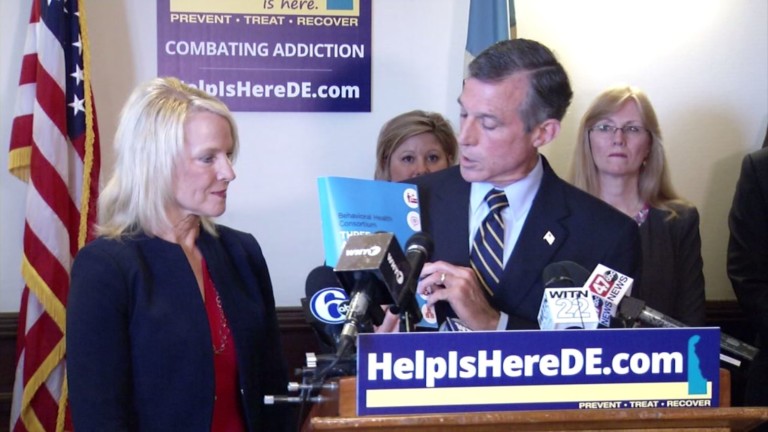Delaware releases plan of action for mental health and addiction issues

A plan of action is now in place for Delaware to address the mental health and addiction issues. This coming 10 months after Delaware’s Behavioral Health Consortium was created.
“This action plan comes from over 600 Delawareans who helped us put pen to paper to come up with both short term and long term actions,” explains Lt. Gov. Bethany Hall Long.
It’s a start, a necessary step to begin to combat an epidemic that’s affecting thousands of families, children, and loved ones.
Elizabeth Romero, the Director of DSAMH, says, “Our families and individuals are exhausted, they’re exhausted and they’re tired. They’ve been trying so hard to fight for their loved ones, to fight for themselves to get access to treatment, to get access to mental health services and we need to do better.”
That’s why the Behavioral Health Consortium led by Lt. Gov. Hall Long has come up with 117 recommendations.
Recommendations that focus on education, prevention, treatment and services.
“Making sure people have the tools and the training whether it’s a school teacher, a correctional officer to a faith-based leader. We need that service and they need to know where to send people and have a 24 hour hotline a point of entry where people can actually enter if they do come across someone who is experiencing suicidal thoughts.”
The most immediate actions that they plan on addressing first are access to treatment. To stop the bleeding by expanding intensive outpatient treatment, like the SUN Behavioral Health expansion in Georgetown, and transitional housing.
They are also focusing on breaking the stigma that comes with mental health and addiction issues.
“Getting people willing and talking about mental illness and substance abuse to not be ashamed is step one. And so working with our education system, our work place and our communities,” exclaims Hall Long.
They’re hoping these recommendations, this plan of action, will be used as a launchpad to fix the behavioral health system as a whole.
This report is a three-year action plan that addresses short and long-term goals. The first list of objectives on the agenda, according to the Lieutenant Governor, is to increase naxolone use and make headway in providing addicts a overdose system of care.
A few years ago, Delaware began using a stroke system of care, which created an organized system from the time patients were admitted into the hospital to continued care and assistance to get them back out into the community.
This is an approach they plan on trying with overdose patients. To take an addict from the hospital bed right into treatment with no waiting in between.
Rep. David Bentz tells 47 ABC, “What we really want to do is create warm hand offs so to speak and remove those obstacles that somebody has from when they do experience an overdose to when we get them into treatment so we create one sort of streamline process for them.”
Bentz is set to introduce this legislation of continuum care for overdose patients when legislators go back for June's session.


